20 November 2025
Rethinking Biosecurity: How Local Innovation Can Strengthen Global Animal Health
When we talk about antimicrobial resistance (AMR), the conversation often starts with science- but it must end with people. On farms, in markets, and across rural communities, the choices made each day about animal health and hygiene determine whether antibiotics remain effective.
This is where biosecurity comes in. Not just as a checklist or a technical standard, but as a living practice rooted in our behaviours and the realities of farm life.
Yet, for many farmers and producers, especially in low- and middle-income countries, biosecurity is not yet a part of life. How do you talk about containment when animals share space with people? How do you enforce hygiene when water is scarce, or veterinary advice is out of reach? That is where the new generation of changemakers comes in.
Through the Trinity Challenge youth funding competition, we’ve seen that biosecurity can be reimagined through local connection and collaboration. Seven youth-led teams from around the world have delivered biosecurity campaigns in their communities. As part of World AMR Awareness week, we want to celebrate their impact.
From policy to practice
Translating policy frameworks into practice requires local leadership.
The Level Up Biosecurity, Lock out AMR team are doing just that. In Uganda, where access to vaccinations is limited, young public health advocates delivered community-led training sessions around handwashing, feed hygiene, and animal vaccination. One participant said- “This training makes me feel part of something bigger than my own village farm, it gives me tools and a network to create change.”
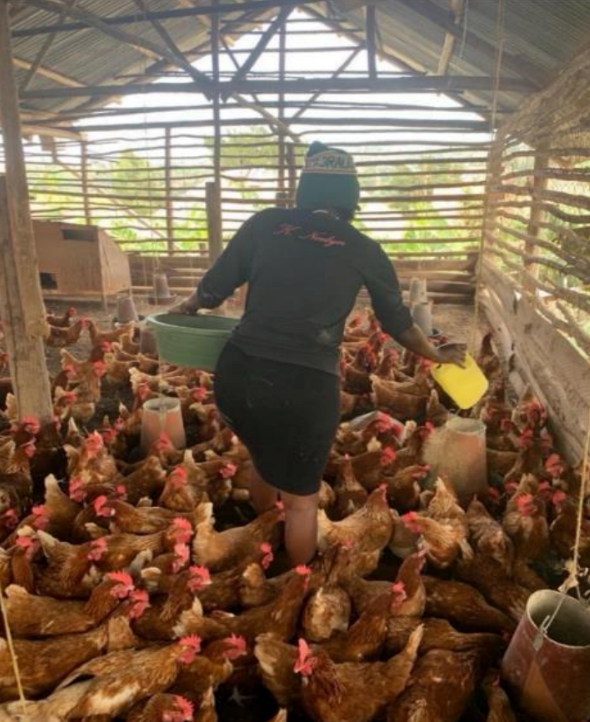
Farmer working with the Level up biosecurity, lock out AMR team
What this shows is a recognition that effective biosecurity is not imported – it’s co-created. When farmers understand the “why” behind hygiene and prevention, compliance becomes community pride rather than obligation.
Adaptive innovation
Global discussions on animal health often assume access to sophisticated labs and data systems. But for many smallholders, the simplest innovations can be the most transformative.
In Kenya, the G.O.A.T campaign team developed a mobile app, currently being piloted, to help goat farmers record treatments and link with veterinarians, transforming basic record keeping into disease prevention. The lesson? Innovation doesn’t always mean invention – it can mean adaptation. The best ideas are often those that scale quickly, and work offline.
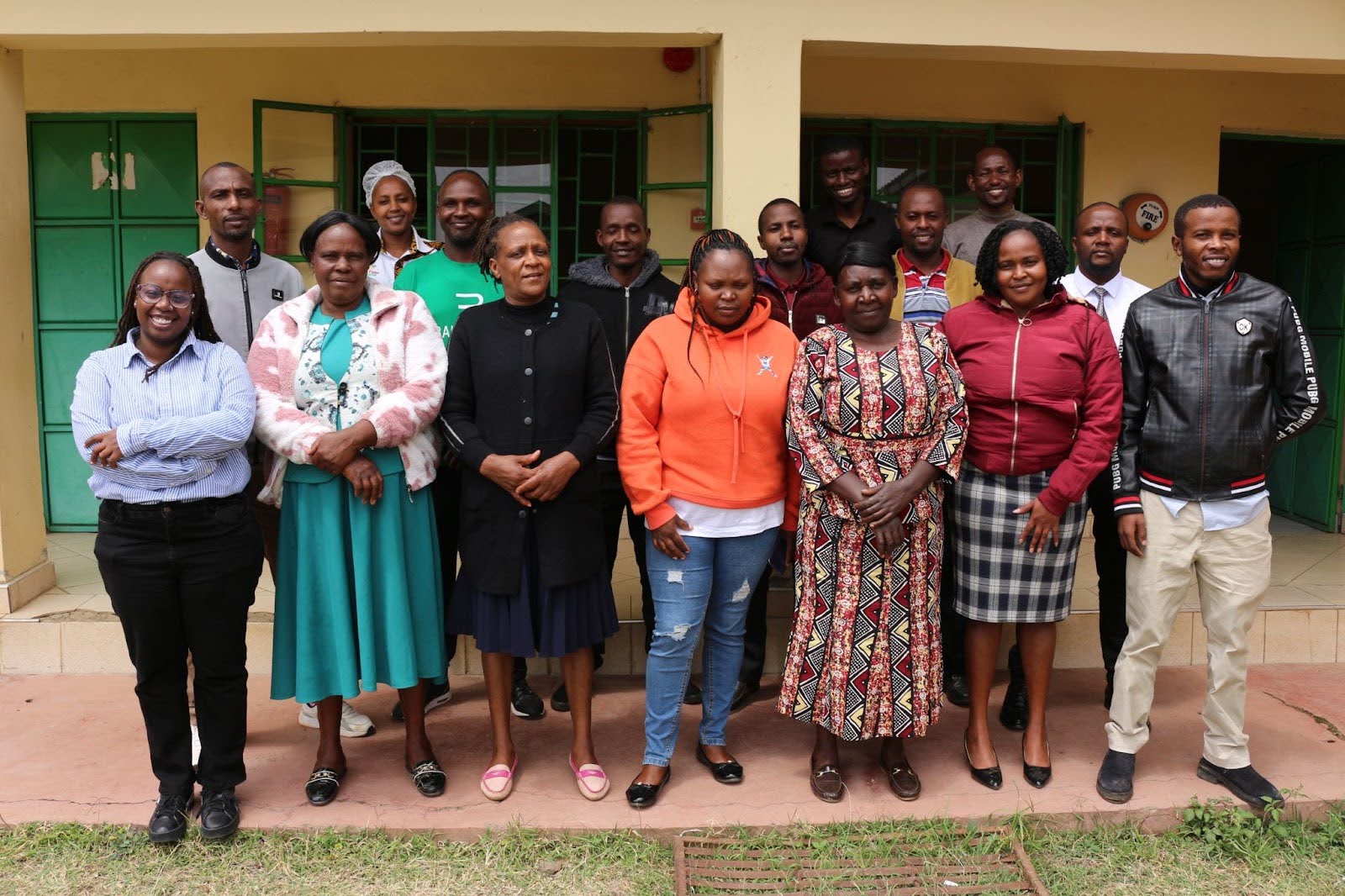
G.O.A.T team workshop
The cultural dimension of health
AMR is not just a biological challenge- it is a cultural one.
In South Africa’s Eastern Cape, the Protecting Cultural Livelihoods project – a group of young filmmakers explored how traditional livestock practices intersect with public health. Their films in the local language, isiXhosa, didn’t just inform, they empowered. They built a bridge between scientific recommendations and community heritage.
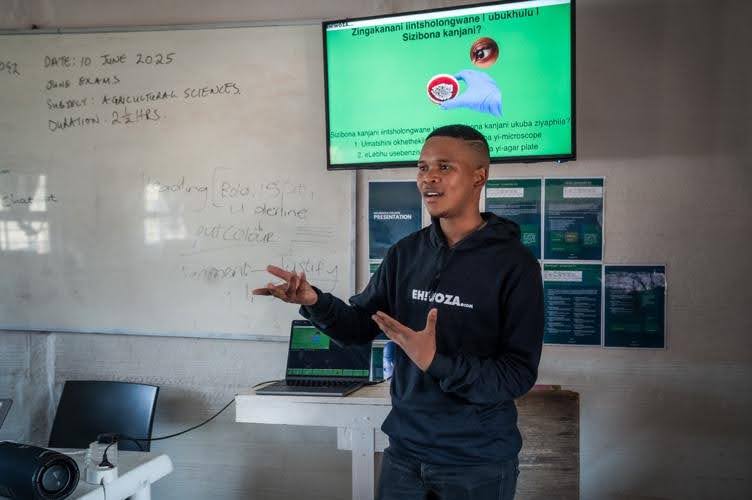
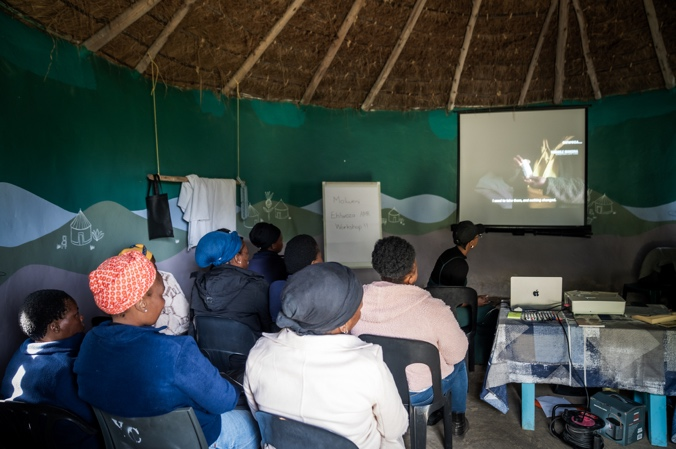
Eh!Woza and the Protecting Cultural Livelihoods team delivering sessions
This is exactly the kind of context-sensitive communication that is crucial for effective AMR response. When communities see their language, stories, and values reflected in health education, change becomes possible and lasting.
Behaviour change is the real frontier
The global fight against AMR is, at its heart, a behavioural challenge.
Many farmers already know antibiotics shouldn’t be misused – but lack affordable alternatives, time, or confidence to change routines. Trinity Challenge youth projects have shown that with behavioural nudges, peer learning, storytelling and public recognition, effective change is possible.
In Zambia, a youth-led workshop run by Hygiene for our Flock inspired one poultry farmer to install a disinfectant footbath at the entrance to her coop. Her chick mortality dropped significantly.
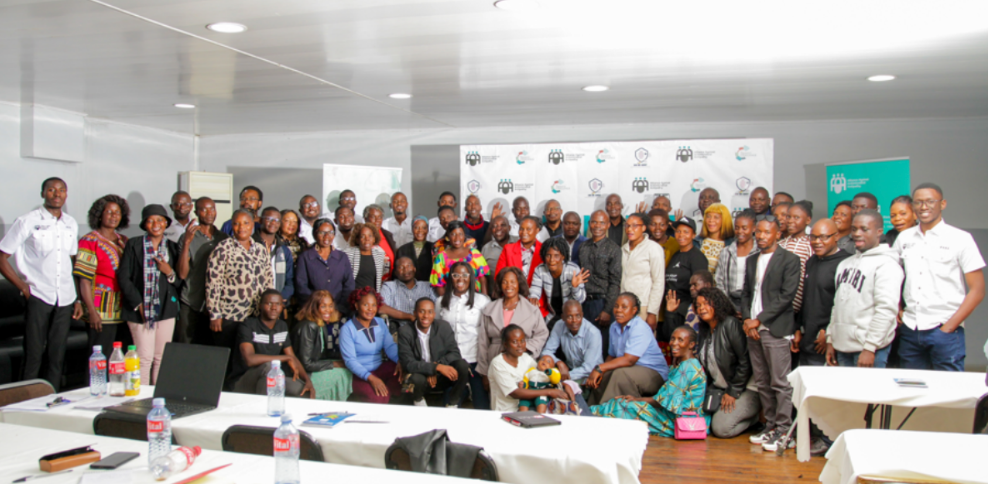
Hygiene for our Flock youth-led workshop
Global goals, local guardians
In September this year, the Trinity Challenge and two of the biosecurity youth winners travelled to Rome to present at the FAO Conference on Sustainable Livestock. The conference spotlighted the importance of a Global Health Strategy for animals and livestock with emphasis on prevention, education, and One Health collaboration.
Dr Salman Khan Team Leader of the From Farm to Campus campaign based in India and Ednah Wanjiru from the G.O.A.T campaign in Kenya demonstrated through their presentations that these strategies can thrive in grassroots environments when youth and farmers are given space to lead.
These projects represent more than pilot programmes. They are proof that with the right support and by putting young leaders at the centre, the global AMR agenda can be delivered successfully at the local community level.

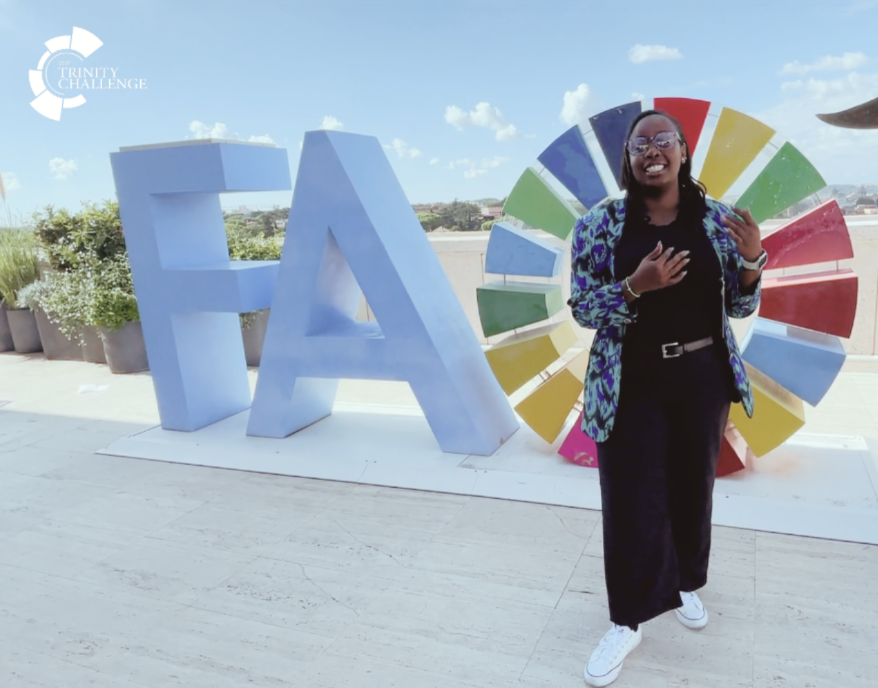
Ednah Wanjiru, G.O.A.T, ISAAA Africentre and Dr Salman Khan, From Farm to Campus, ReACT Africa
The future of animal health in the hands of our young changemakers!
As we mark World Antimicrobial Resistance Awareness Week 2025, we are reflecting on the fact that the smallest decisions taken in the most local settings can have the biggest impact on our global health systems. Every disinfected boot, every shared training, every farm visit – these are the building blocks of a biosecure future.
At The Trinity Challenge, we believe the next generation is already leading that future: young changemakers who see animal health not as a technical field, but as a space where culture, science, and community come together. Biosecurity begins with people.
